John Flynn, Pindara and Gold Coast private hospitals taking more pregnant mothers from Gold Coast University Hospital
The rate of vaccination among Gold Coast midwives is ‘lower’ than other health care workers, with the city’s private hospital birthing more public patients.
Gold Coast
Don't miss out on the headlines from Gold Coast. Followed categories will be added to My News.
THE city’s private hospitals say they are ready to support their public health colleagues if the Delta variant takes hold of the Gold Coast when state borders open.
It comes as the Bulletin was told by at least three specialists, who work at John Flynn, Pindara and Gold Coast private hospitals, that they had been asked to be on call to accept all birthing mothers from Gold Coast University Hospital (GCUH) in the wake of the September 30 vaccination deadline.
One doctor, who did not want to be named, said they were told up to 20 women planning to give birth at GCUH in the next few weeks would have to be moved into the private system due to an anticipated shortage of nurses and midwives.
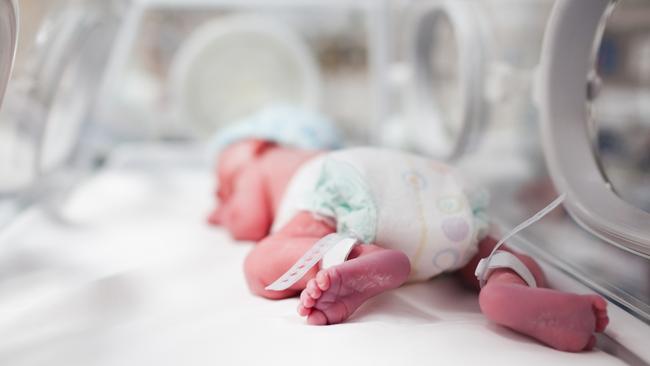
Another specialist said the practice of public birthing in private hospitals wasn’t a new thing but that “it’s got a little bit worse recently”.
“I was told it was because some midwives refused the Covid vaccine,” he said.
“Normally, before Covid, they just ring up on Friday and say, ‘we don’t have any beds this weekend and we have an induction booked in for tomorrow, can you please take over this patient?’”
The person said all three hospitals were taking pregnant mothers but Gold Coast Private took more, due to its proximity to the GCUH.
“So if something happens the patients can get transferred back,” they said. “It’s expensive, I’d estimate about $10,000 per patient.”
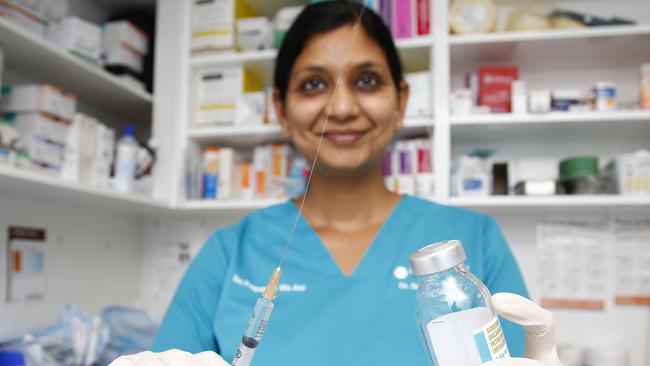
Former Gold Coast Medical Association president Dr Sonu Haikerwal said there were about 6000-7000 unvaccinated health workers in the state, with midwives a large majority of those. “The vaccination rate among midwives is lower compared to doctors or nurses,” she said.
Dr Haikerwal said a baby boom could be why more cases were being sent to private hospitals from GCUH.
A Gold Coast Health (GCH) spokeswoman said it had ongoing partnerships with private-sector hospitals to maximise the health resources available.
“The Gold Coast clinical workforce, public and private alike, are highly trained and focused on caring for our community, and Gold Coasters can take great comfort in knowing that, despite the ever-present threat of Covid – 19, they have access to world-class healthcare,” she said.
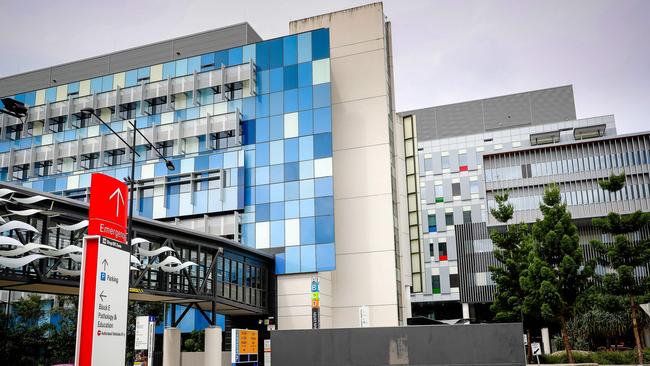
A spokesman for Gold Coast Private said the hospital worked closely with public health colleagues to treat public patients when asked.
“These partnerships have proven especially important during the Covid pandemic, taking pressure off the public system and helping ensure all patients receive high-quality and timely care,” he said.
Ramsay Health Care said Pindara and John Flynn hospitals provided workforce and capacity to ensure all patients “received access to health care treatment during the Covid-19 pandemic”.
“If the Delta variant were to take hold on the Gold Coast, we would expect to assist the public sector in an even greater capacity,” it said.
“To keep our health care sector free to treat emergency and elective patients, we encourage (people) to get vaccinated as quickly as possible.
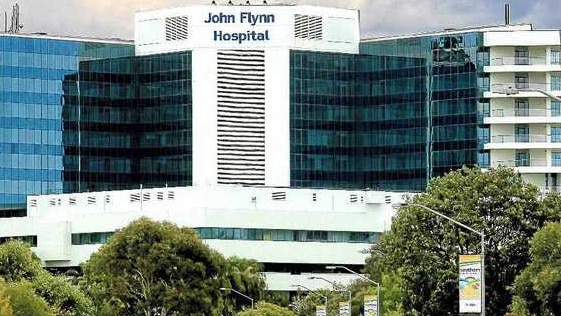
REVEALED: Gold Coast Health’s plan to reduce burden on EDs
October 11
THE Gold Coast’s ageing population is adding an extra layer of burden to the city’s already overwhelmed hospital and health service, with 20 per cent of presentations by patients 65 and over and more than 125 patients arriving daily.
Included is this figure is an average of 17 patients arriving from residential aged care facilities every day, with most arriving by ambulance.
In a bid to reduce the strain on bulging emergency departments (ED) and ensure older Gold Coasters receive age-appropriate care, Gold Coast Health (GCH) has instigated new service delivery models.
The Geriatric Emergency Department Initiative (GEDI) helps to fast-track care for the elderly in ED, while its Residential Acute Support Services (RASS) is sending doctors and nurses into residential aged-care facilities (RACF).
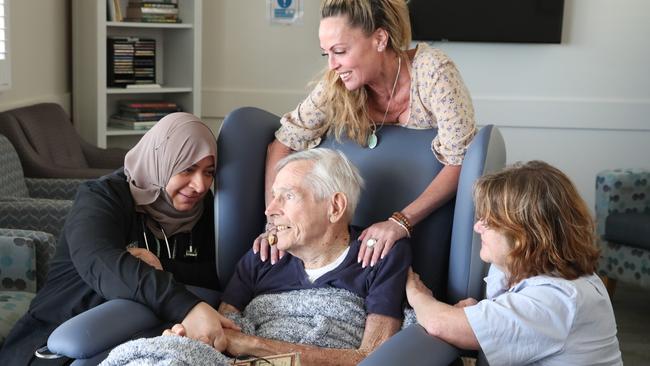
In three months, 1800 people aged 65 and older were kept out of emergency departments thanks to the RASS initiative, and the GEDI team undertook 764 nurse assessments at Gold Coast University Hospital’s ED.
From May to July in 2021, the RASS team had contact with 57 of the 59 aged-care facilities across the city. In July the team has 58 calls, with 27 resulting in an outcome other than transfer to the ED.
The aim of the service is to optimise the quality of care of frail older patients including aged care facility residents with acute health care needs. RASS offers an outreach and in-reach service, with the outreach initiative visiting residents in aged care for face-to-face assessment and offering clinical advice over the phone or FaceTime.
Staff also provide clinical support to meet acute care needs such as starting IV antibiotics and support with end-of-life care It also facilitates mobile imaging service in conjunction with Aged Care Imaging to provide mobile X-rays and ultrasounds to residents in care.
Senior nursing staff are also on call to provide telephone triage and advice to RACF workers to support hospital avoidance where appropriate.
The in-reach service team, for elderly residents who present to ED or are admitted to hospital, liaise with the treating hospital teams, GPs and aged care staff to help with a timely discharge and an individualised plan for continuity of care.
The service works in close partnership with RACF staff and the patients GP and doesn't aim to replace or duplicate existing coverage but is an additional supplementary service.
As for the GEDI service, it provides geriatric focused assessments in ED, to fast track older people being seen in ED, to support and deliver optimal clinical management and help with discharge planning.
It also links discharged patients with services such as domestic cleaning, personnel hygiene, transport, physio, and occupational therapy in the community.
Assistant nurse in training Lisa Irwin said her 88-year-old father Logan Irwin lived independently before he had a fall and ended up in hospital for 12 weeks.
While her father’s mind was sharp, Ms Irwin says her dad’s body “has let him down” and he’s been a resident at Ozcare Ozanam Villa Burleigh Heads for nearly a year.
“He’s had a few visits from doctors which has been wonderful,” she said.
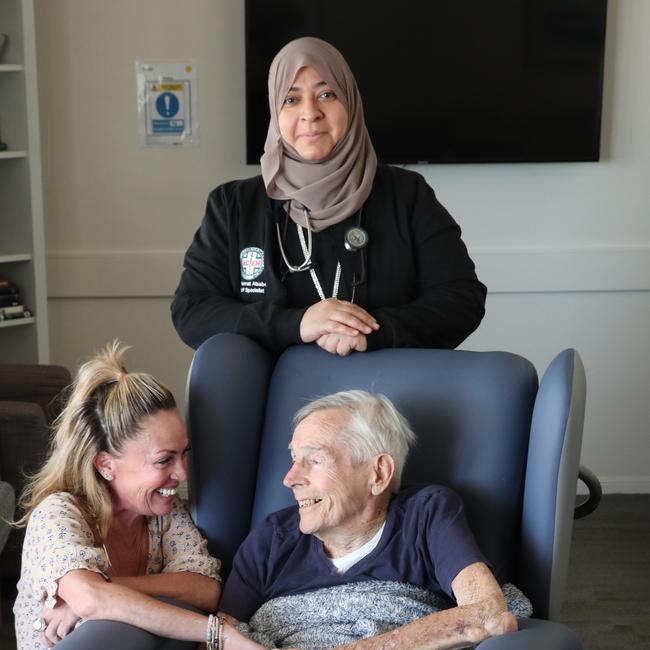
“The last time he was unwell, if this RASS team hadn’t been available he would have been taken to hospital and been all alone because it was during lockdown.
“A lot of older people have never had to go to hospital and they’re not used to the environment and it’s quite traumatic for them.
“For them the ride in an ambulance is bumpy and scary and one minute can feel like an hour.”
Dr Nemat Alsaba, an emergency physician at GCUH who oversees the initiatives, while the data showed the service was working, not “everything that matters can be measured”.
“Simple things that might not have statistical significance but has huge impact on the patient and their carers satisfaction such as changing a urinary catheter, or backslab for fractured wrist or doing a follow up x-ray or ultrasound without the need to transfer them via ambulance to a busy hospital or providing end of life care to the patient in their own residence/room,” she said.

“It is honourable to care for those who once cared for us,” said Dr Alsaba.
“It is also rewarding to give back and pay our respect to our seniors, to whom we are in debt for their contribution and sacrifice in order to build the country and the community that we live in.
“Giving back in GEM is to ensure that our older people have equal opportunities to access health care services with care delivery that caters for their unique needs.
“Simply put, it may be said that how we care for our older people in our community is a great test of our moral, cultural, and professional integrity.”
The Queensland Health’s Health Improvement Unit allocated $2.47m to run the programs.
Plans revealed for major Coast hospital expansion
October 7, 2021
THE overburdened emergency department at Gold Coast University Hospital is being extended to cope with “growing demand” and so ambulances can return to the community “as soon as possible”.
Staff were told that 10 new treatment spaces and procedure rooms would be constructed this year as part of the extension of GCUH’s emergency department.
It comes after a year in which the Gold Coast Health and Hospital Service has experienced unprecedented demand due to a population explosion and extra pressure on resources because of the Covid pandemic.
A Gold Coast Health spokesperson said emergency department demand on the Gold Coast continued to grow with public hospital EDs seeing more than 46,200 presentations in the July to September quarter. This is an increase of 4.15 per cent on the same quarter last year.
She confirmed the extension would “help address demand and to improve ambulance offload times”.
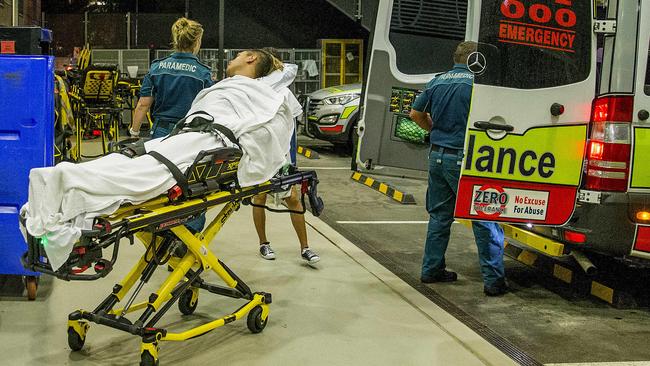
Previously Gold Coast Health have said: “More people are choosing public hospitals over the private system, and patients are presenting with more complex, chronic health needs than ever before.”
In May this year GCUH and Robina hospitals had record admissions of 714 on one day, pushing GCUH into a 6.3 bed capacity, which is equivalent to a code yellow in other hospitals. A code yellow declaration is made when a hospital is full and cannot meet public demand for the local area health service.
This was caused by a surge in ambulance arrivals as well as the number of walk-in presentations.
According to letter sent to staff this week by Ron Calvert, chief executive of the Gold Coast Hospital and Health Service, work on the new treatment spaces would start this month.
“The extension will help improve ambulance offload times to the Queensland Ambulance Service can get back out into the community as quickly as possible after bringing a patient into the ED,” he said.
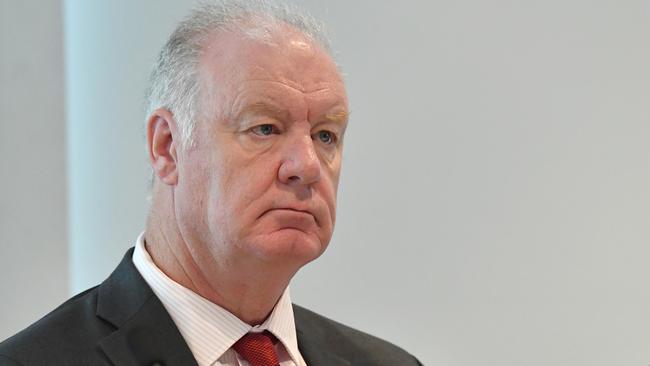
“It will also be another stop closer to addressing patient flow through the ED as we continue to see growing demand.”
Site preparation is due to start this month, with the modular-design extension complete in February 2022.
To make way for the “important patient service” Mr Calvert said the existing Wellness Garden in the parklands would need to be relocated. This currently includes a sensory and vegetable garden as well as a staff memorial.
“I acknowledge the importance of the garden to our staff, patients and community, so we are taking the opportunity to reimagine our garden in the coming months,” he said.
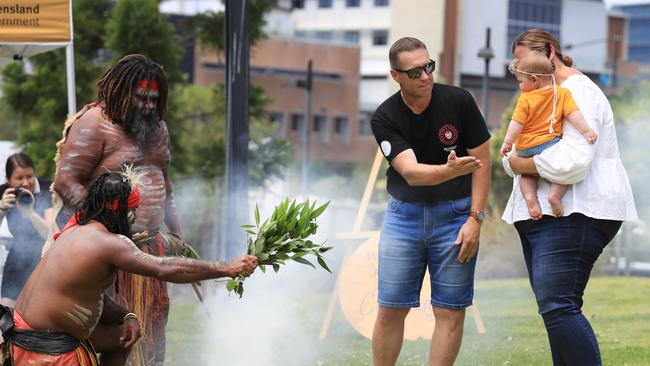
Mr Calvert said the new location and design would be culturally appropriate, offer a sensory garden environment for patients and staff and would accommodate the health and hospital services community events and gatherings.
Staff were told a “group of dedicated community gardeners” are working to preserve and protect existing plants during the construction phases, with the new garden set to be completed in late January 2022.
A contact was given for those who were interested in caring for plants while construction works were undertaken, in a “foster-plant capacity” or people with suggestions for the reimagined garden.
Gold Coast Health said the extension, provided under previously announced Care4QLD funding, would open in February 2022.


